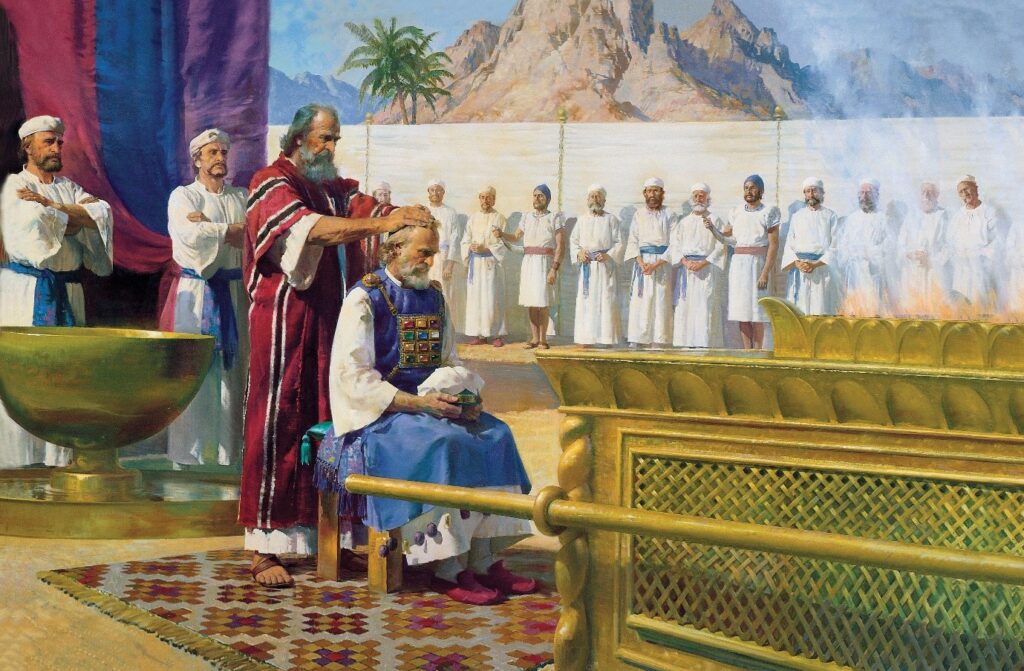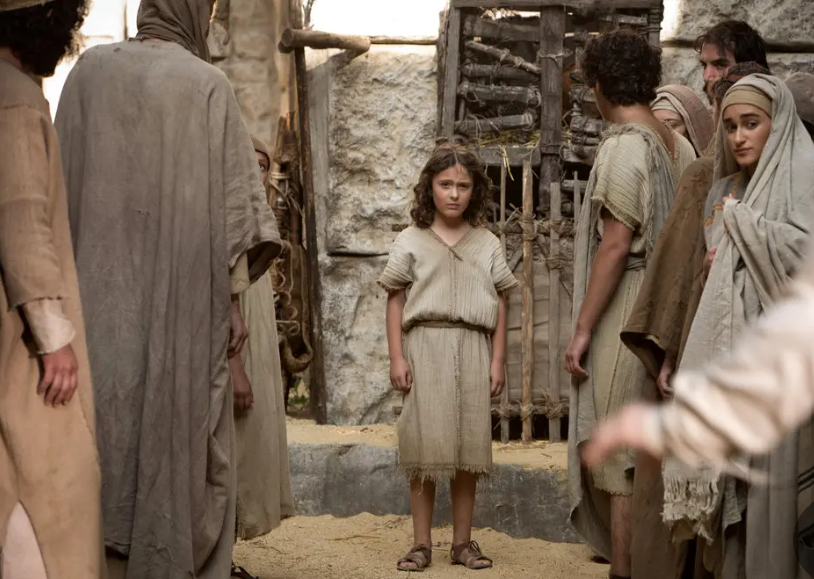To accompany your Come Follow Me study for October 30-November 5
In addition to reading the indicated chapters, you may wish to:
Read the applicable portion of the New Testament Institute Student Manual at :
See the following videos:
If you would like a Kahoot game related to this material which you could use for personal study or use with your family or your class, click here: https://create.kahoot.it/share/hebrews/10976303-2b95-4654-adca-70abce971425 . (To use it with a group, after clicking on this link, you will need to log into Kahoot, creating a free account if you have not done so previously, then click on the blue “Start” button.)
Points to Ponder in Hebrews 1-6
For each of the following passages from Hebrews 1-6, briefly indicate what you believe to be the correct interpretation of the passage and/or one or more practical applications of the passage. In other words: (1) What is the passage really saying, in simple English? And (2), what good do we get from the passage once we understand it? Does it increase our faith? Does it motivate us to live better? Does it clarify an important doctrinal point? Does it help in teaching the gospel to others?
1. 1:1‑3
2. 1:14
3. 2:1-3
4. 2:7
5. 2:9
6. 2:10
7. 2:11
8. 2:17‑18
9. 3:7‑19
10. 4:1‑11
11. 4:8
12. 4:12
13. 4:15
14. 5:4
15. 5:8‑9
16. 5:12‑6:1
17. 6:4‑6
Possible Answers to Points to Ponder in Hebrews 1-6
1. 1:1‑3
Christ looks just like His Father, implying that the Father, like the Son, has a body of flesh and bones. But He is a separate being, as is indicated by the fact that He could sit down on the right hand of His Father. Under His Father’s direction, Jesus created this and countless other worlds. Some have argued that this passage is suggesting that since Jesus is the fulfillment of the central message of all ancient prophets, there would be no similar prophets after Christ. But there is nothing in this passage which needs lead us to that conclusion. Latter-day Saints testify that just as pre-Christian prophets foretold His coming, so do latter-day prophets testify that He came, that He lives, and that He directs His church today through His appointed leaders.

2. 1:14
Angels minister now for those who shall be heirs of salvation. Whether we see them or not, we can be confident of their help. And when we pass through the veil, we will have the same opportunity to minister, as angels, to righteous loved ones and others on the earth.

3. 2:1-3
The New Living Translation does a good job here: “So we must listen very carefully to the truth we have heard, or we may drift away from it…. So what makes us think we can escape if we ignore this great salvation?” In short, we can’t be casual about our Church membership and devotion. We must be serious and work hard to comply with all we have been asked to do and have promised to do.
4. 2:7
Paul here quotes from Psalms 8:5 but adds a word to make the passage even more compatible with Latter-day Saint doctrine. The passage in Psalms 8:5, speaking of God’s relationship to man, is rendered in the King James Version as “Thou hast made him a little lower than the angels.” But the Hebrew word translated as “angels” is actually “elohiym,” meaning God or the gods. When Paul quotes it in Hebrews 2:7, the Greek word he uses for “little” is “tis,” meaning for a while, or for a little time, and it is so translated in many English translations. In other words, Paul understood the author of Psalms to be teaching that for now, God has made men and women of lower status than Himself, implying that the day will come when we can potentially inherit the same eternal opportunities and happiness God Himself enjoys.
5. 2:9
Paul tells us here that Jesus “tasted death for all.” That is particularly interesting in view of D&C 42:46, which promises that the righteous will not “taste of death, for it shall be sweet unto them.” Of course, the righteous, as well as the wicked, will die. And they could well experience some pain prior to their passing. But death itself will be a joyful experience for them, since Jesus suffered for each of us what would have otherwise been an excruciatingly unpleasant experience for us all, as we would have been compelled to face our Maker with the guilt of our sins upon us.
6. 2:10
Christ was made perfect through sufferings. Though He suffered for our sins so that we would not have to suffer for them, God may still let us each experience a certain amount of suffering, both physical and emotional, as part of our own process of perfection.
7. 2:11
The New International Version makes this passage much clearer and more exciting: “Both the one who makes people holy and those who are made holy are of the same family. So Jesus is not ashamed to call them brothers and sisters.” So, we are not just God’s creation, we are His children, just as Jesus is!
8. 2:17‑18
Other translations support that this passage refers not only to temptation but to other trials and suffering. The New Living Translation, for example, says: “Therefore, it was necessary for him to be made in every respect like us, his brothers and sisters…. Since he himself has gone through suffering and testing, he is able to help us when we are being tested.” It is wonderful to know that when any trial, temptation, or challenge comes to us, Jesus has already experienced the same and is in a position to both understand us and to help us.
9. 3:7‑19
Hebrews 3 here quotes Psalms 95:7-11, about how the Lord endeavored to bring the ancient Israelites into His spiritual presence while in the wilderness, a condition God calls his “rest.” It was to have included the privilege of beholding the face of God Himself. But as Psalms 95, Exodus 34, and D&C 84 make clear, ancient Israel rebelled against the Lord and did not qualify for that blessing. D&C 84:24 says: “But they hardened their hearts and could not endure his presence; therefore, the Lord in his wrath, for his anger was kindled against them, swore that they should not enter into his rest while in the wilderness, which rest is the fulness of his glory.” Mormon teaches us that this is a condition available to worthy followers of Christ here and now. He says, in Moroni 7:3, “Wherefore, I would speak unto you that are of the church, that are the peaceable followers of Christ, and that have obtained a sufficient hope by which ye can enter into the rest of the Lord, from this time henceforth until ye shall rest with him in heaven.”
10. 4:1‑11
Like Mormon, Paul urges his readers to strive to enter into God’s “rest” in this life. He assures us that “we which have believed do enter into rest.” (v. 3.) This passage is also noteworthy because of verse 2, which confirms that the “gospel” was not something new with Jesus Christ, as many Christians believe, but was also preached to ancient Israel. This could be a good passage to cite to any new readers of the Book of Mormon who question the many references to Jesus Christ, baptism, and other Christian elements among the Nephites.
11. 4:8
This could be a confusing passage if one didn’t understand that the allusion here to “Jesus” means “Joshua,” Moses’ successor, not Jesus Christ.
12. 4:12
As footnote 12a confirms, this verse is often quoted or paraphrased in the early sections of the Doctrine and Covenants. It may help to think of “word” in this case as equivalent to “Spirit.” God’s Spirit is “quick,” or alive, powerful, sharper than a twoedged sword, and is a discerner of the thoughts and intents of the heart.
13. 4:15
This has much the same message as Hebrews 2:17-18: Jesus was tried and tempted just as we were, so he can understand and feel our pain. Yet, though he went through the same temptations we face, He demonstrated that it is possible to do so without yielding to sin.
14. 5:4
In much of the Protestant world, it is felt that one needn’t go through an ordained priest but that all believers have equal access to God and equal obligation and authority to serve Him. This passage in Hebrews, however, teaches us that “no man taketh this honor [or priesthood] unto himself,” but must be called of God, as was Aaron. Exodus 28:1, however, reminds us that Aaron was called by the living prophet at the time, Moses, and Exodus 29 spells out in detail how Moses was to consecrate Aaron and his sons in a specific ceremony, which no doubt included the laying on of hands. This can be a helpful passage for missionaries to use to help those they are teaching understand the need for priesthood authority.

15. 5:8‑9
Some could ask if the fact that Jesus “learned obedience by the things which he suffered” and was “made perfect” means that Jesus made some mistakes and was at one point in His life less than perfect. Our answer is that He was always morally perfect, never consciously transgressing any commandment of His Father. But as a baby, he quite likely cried at inconvenient times, from Mary’s and Joseph’s standpoint. If he had played baseball, He would probably have struck out with normal frequency. If shooting a bow and arrow, He would have missed the target in the process of learning to shoot more accurately. He wasn’t born knowing the multiplication tables. He was thus initially imperfect in his knowledge and in His earthly abilities. His human errors no doubt caused “suffering” at times, to Himself and perhaps to others. But He learned from His mistakes and grew into a perfection which allowed Him to atone for the sins of us all and return to His status of glory which He had in the heavens before His birth.

16. 5:12‑6:1
Should we leave the principles of the doctrine of Christ, or not? It depends on how one understands the word “principles.” Paul uses it here to mean the very most elementary things, hoping that those who are called to be teachers of the word would figuratively have graduated from Primary and be ready for a deeper understanding of the gospel. The New International Version (NIV) suggests that 6:1 could begin with “Therefore let us move beyond the elementary teachings about Christ.” But most scripture readers think of “principles” as referring to such things as faith, repentance, baptism, and the gift of the Holy Ghost, which we would never want to leave behind. Joseph Smith, realizing that, changed the passage to read, “Therefore not leaving the principles of the doctrine of Christ, let us go on unto perfection.” That will be a much more comfortable reading for the majority of us. But the passage is perfectly good as it stands in the King James Version, if one understands what Paul is trying to say.
17. 6:4‑6
Fortunately, this passage has no reference whatsoever to 99.9999% of those members who simply become less active and stop living the gospel. It refers instead to that very limited category of apostates called in D&C 76 “sons of perdition,” who leave the faith and fight against it after having known with a perfect knowledge, through the Holy Ghost, that it is true. In short, anyone who has to wonder if he has become a “son of perdition,” has not.
